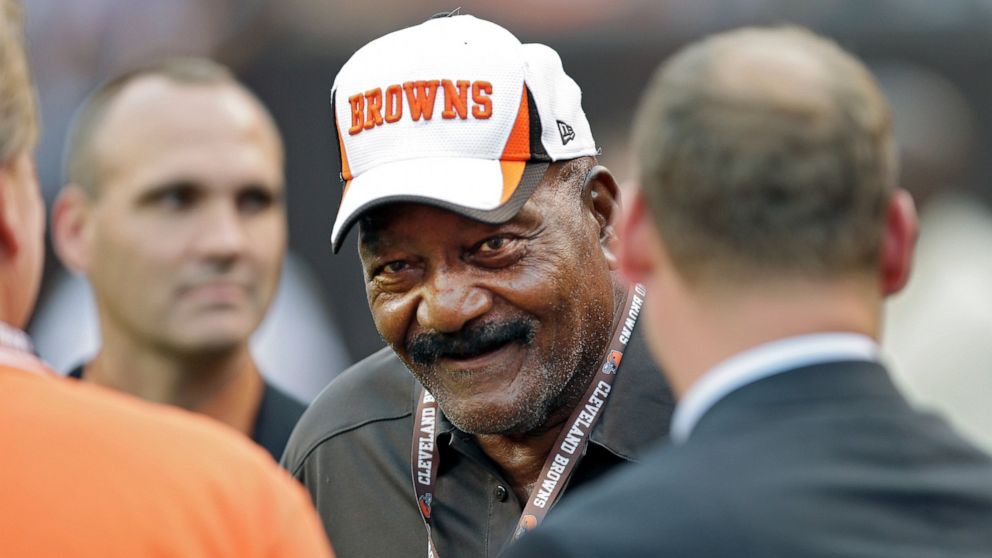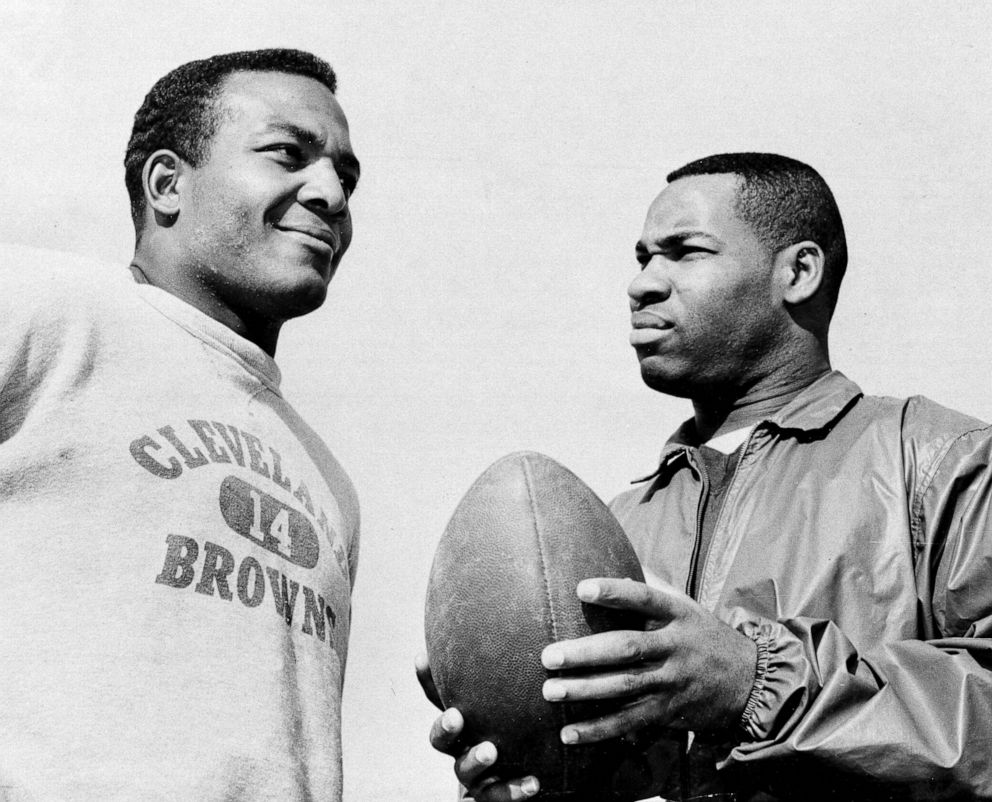

Jim Brown, a preternatural talent on the football field and later both a movie star and civil rights activist, has died, according to the Cleveland Browns, his former team. He was 87 years old.
"It’s impossible to describe the profound love and gratitude we feel for having the opportunity to be a small piece of Jim’s incredible life and legacy," the Cleveland Browns said in a statement. "We mourn his passing, but celebrate the indelible light he brought to the world."
Brown was elected to the Pro Football Hall of Fame in 1971 and is in the conversation as the greatest football players ever. He was chosen for the NFL's 50th, 75th and 100th anniversary teams and selected as the greatest college football player of all-time at the 2020 College Football National Championship.
He was born in tiny St. Simons, Georgia, but developed a legendary athletic career after moving to Manhasset, New York, on Long Island, as a boy. He excelled at every sport he tried, but especially football and lacrosse. He played both at Syracuse University -- and would become a Hall of Famer in both.

He was the No. 6 overall pick in the 1957 NFL Draft by the Cleveland Browns -- he was one of four Hall of Famers selected in the top 8 picks -- and won Rookie of the Year.
He played just nine seasons in the NFL, all with the Browns, before a contract dispute eventually led him to walk away from the game for good for a lucrative movie career. But in those nine seasons he led the league in rushing eight times and made the Pro Bowl every season.
Brown won his only NFL Championship in 1964, his second-to-last year in the league.

While filming "The Dirty Dozen" in 1966, he walked away from football permanently when Browns owner Art Modell demanded he return to training camp. "The Dirty Dozen" was a major box office hit, grossing over $45 million in 1967 (more than $500 million in 2020 adjusted for inflation).
Brown would go on to star in 19 more films, often as the lead, in the 1960s and '70s. This included hits like "The Split," "Riot," "Ice Station Zebra" and "100 Rifles," where an interracial love scene with Raquel Welch was among the first in a major movie.

As a leading Black athlete and star in the '60s and '70s, he never avoided speaking out against racial injustice.
While he became an influential activist, Brown's life was regularly marred by violence, especially toward women. In 1965, he was charged with assault and battery against an 18-year-old woman, but was later acquitted. Three years later, he was charged with assault after his girlfriend, model Eva Bohn-Chin, was found on the ground beneath a second-floor balcony at his home. Bohn-Chin refused to cooperate in the case and the charges were later dropped.
